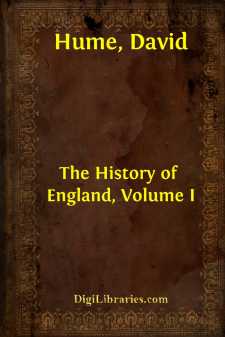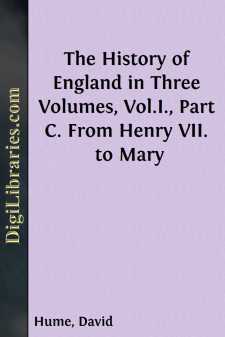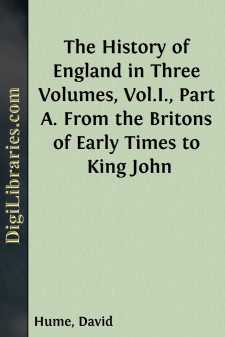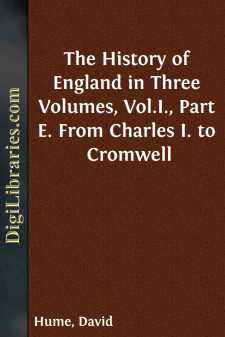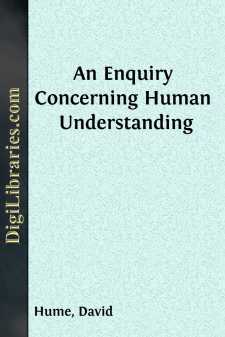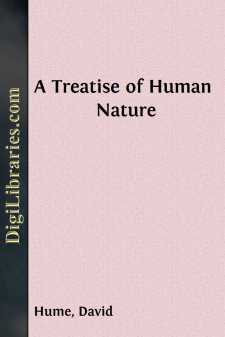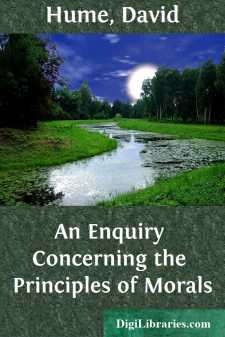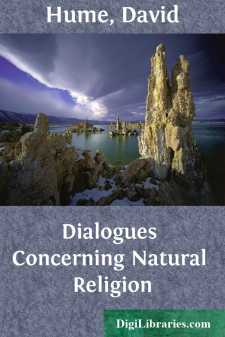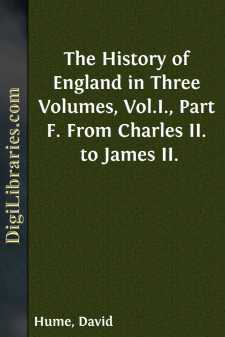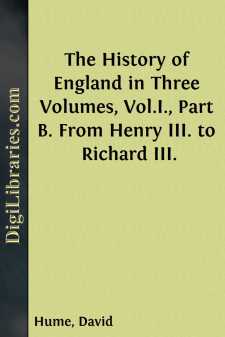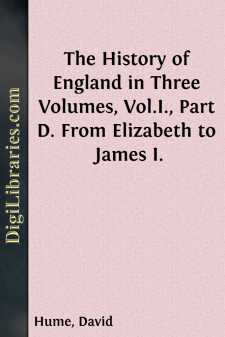Categories
- Antiques & Collectibles 13
- Architecture 36
- Art 48
- Bibles 22
- Biography & Autobiography 813
- Body, Mind & Spirit 142
- Business & Economics 28
- Children's Books 17
- Children's Fiction 14
- Computers 4
- Cooking 94
- Crafts & Hobbies 4
- Drama 346
- Education 46
- Family & Relationships 57
- Fiction 11829
- Games 19
- Gardening 17
- Health & Fitness 34
- History 1377
- House & Home 1
- Humor 147
- Juvenile Fiction 1873
- Juvenile Nonfiction 202
- Language Arts & Disciplines 88
- Law 16
- Literary Collections 686
- Literary Criticism 179
- Mathematics 13
- Medical 41
- Music 40
- Nature 179
- Non-Classifiable 1768
- Performing Arts 7
- Periodicals 1453
- Philosophy 64
- Photography 2
- Poetry 896
- Political Science 203
- Psychology 42
- Reference 154
- Religion 513
- Science 126
- Self-Help 84
- Social Science 81
- Sports & Recreation 34
- Study Aids 3
- Technology & Engineering 59
- Transportation 23
- Travel 463
- True Crime 29
The History of England, Volume I
by: David Hume
Description:
Excerpt
MY OWN LIFE.
It is difficult for a man to speak long of himself without vanity; therefore I shall be short. It may be thought an instance of vanity that I pretend at all to write my life; but this narrative shall contain little more than the history of my writings; as, indeed, almost all my life has been spent in literary pursuits and occupations. The first success of most of my writings was not such as to be an object of vanity.
I was born the 26th of April, 1711, old style, at Edinburgh. I was of a good family, both by father and mother: my father's family is a branch of the Earl of Home's, or Hume's; and my ancestors had been proprietors of the estate which my brother possesses, for several generations. My mother was daughter of Sir David Falconer, President of the College of Justice: the title of Lord Halkerton came by succession to her brother.
My family, however, was not rich; and being myself a younger brother, my patrimony, according to the mode of my country, was of course very slender. My father, who passed for a man of parts, died when I was an infant, leaving me, with an elder brother and a sister, under the care of our mother, a woman of singular merit, who, though young and handsome, devoted herself entirely to the rearing and educating of her children. I passed through the ordinary course of education with success, and was seized very early with a passion for literature, which has been the ruling passion of my life, and the great source of my enjoyments. My studious disposition, my sobriety, and my industry, gave my family a notion that the law was a proper profession for me; but I found an unsurmountable aversion to every thing but the pursuits of philosophy and general learning; and while they fancied I was poring upon Voet and Vinnius, Cicero and Virgil were the authors which I was secretly devouring.
My very slender fortune, however, being unsuitable to this plan of life, and my health being a little broken by my ardent application, I was tempted, or rather forced, to make a very feeble trial for entering into a more active scene of life. In 1734 I went to Bristol, with some recommendations to several merchants; but in a few months found that scene totally unsuitable to me. I went over to France with a view of prosecuting my studies in a country retreat; and I there laid that plan of life which I have steadily and successfully pursued. I resolved to make a very rigid frugality supply my deficiency of fortune, to maintain unimpaired my independency, and to regard every object as contemptible, except the improvement of my talents in literature.
During my retreat in France, first at Rheims but chiefly at La Fleche, in Anjou, I composed my Treatise of Human Nature. After passing three years very agreeably in that country, I came over to London in 1737. In the end of 1738 I published my Treatise, and immediately went down to my mother and my brother, who lived at his country-house, and employed himself very judiciously and successfully in the improvement of his fortune....


